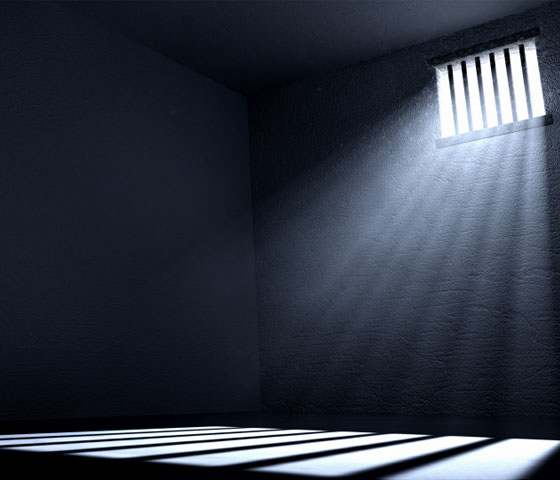
A disturbing image hit the newswires this week, highlighting the barbaric conditions that are all too common in the American prison system. The photo shows a young prisoner in Georgia, who appears to be badly beaten, on his knees with a makeshift leash around his neck, while two other prisoners pose behind him, one holding the leash.
Incredibly, Georgia prison officials have focused their public reaction on the fact that the photo was apparently taken with a contraband cellphone, as if that were the cause of the brutality on display.
Although that fact is part of the narrative, it is not the story.
The real issue here is the apparently widespread and longstanding failure of Georgia officials to keep prisoners safe. In a 2014 report, the Southern Center for Human Rights documented horrifying incidents of violence that had taken place in Georgia prisons without the intervention, or in some cases even the knowledge, of prison staff.
American prisons hold hundreds of thousands of people serving time for nonviolent crimes. Indeed, there are over 3,000 U.S. prisoners serving sentences of life without parole for drug crimes and other nonviolent offenses. But some prisoners, at some times, do act out in violent ways. One of the most important duties of prison staff is to protect prisoners from attack by their fellow prisoners. The Supreme Court has made it unmistakably clear that such protection is required by the Eighth Amendment to the Constitution, which prohibits cruel and unusual punishments.
As the court put it, “Being violently assaulted in prison is simply not ‘part of the penalty that criminal offenders pay for their offenses against society.’” This shocking photo graphically shows how officials all too often neglect this paramount constitutional duty.
Sadly, Georgia is not an anomaly.
In a 2011 case involving California prisons, the Supreme Court cited an incident in which a prisoner was beaten to death in a crowded gymnasium; staff were not even aware that the assault had taken place until the prisoner had already been dead for several hours.
The ACLU has gone to court repeatedly, all across the country, to enforce prisoners’ fundamental right to basic safety – a constitutional guarantee no one should have to argue or fight for. One case involved a private prison in Idaho that had more assaults than the state’s other eight prisons combined, a grim distinction that had earned it the nickname of “Gladiator School.” Right now in Jackson, Mississippi, the ACLU is in federal court arguing that rampant violence at the privately run Walnut Grove Correctional Facility poses a lethal risk to the prisoners confined there.
Some people don’t care what happens to prisoners, believing that they deserve whatever they get. But what’s done in our prisons is a powerful statement about the kind of society we are. Jonathan Simon, a criminal justice expert at the University of California-Berkeley, puts it this way:
“You have to ask yourself: If the basic story that we tell ourselves is that it’s all about laws and sending people to prison because they violated laws and harmed other people, how can we possibly justify sending them to a place where that is happening to them?”
That’s a question that Georgia prison officials – and all of us – need to keep in mind.

